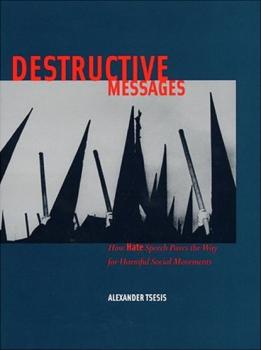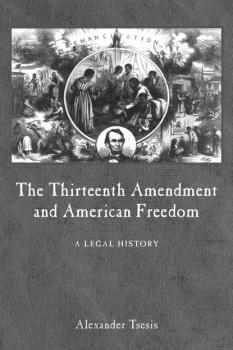ТОП просматриваемых книг сайта:
Alexander Tsesis
Список книг автора Alexander TsesisАннотация
Destructive Messages argues that hate speech is dangerous not only when it poses an immediate threat of harm. It is also dangerous when it is systematically developed over time, becoming part of a culturally acceptable dialogue which can foster the persecution of minorities.Tsesis traces a causal link between racist and biased rhetoric and injustices like genocide and slavery. He shows that hate speech and propaganda, when left unregulated, can weave animosity into the social fabric to such a great extent that it can cultivate an environment supportive of the commission of hate crimes. Tsesis uses historical examples to illuminate the central role racist speech played in encouraging attitudes that led to human rights violations against German Jews, Native Americans, and African Americans, and also discusses the dangers posed by hate speech spread on the Internet today. He also offers an examination of the psychology of scapegoating. Destructive Messages argues that when hate speech is systematically developed over time it poses an even greater threat than when it creates an immediate clear and present danger. Tsesis offers concrete suggestions concerning how to reform current law in order to protect the rights of all citizens.
Информация о книге
Автор произведения Alexander Tsesis
Жанр Юриспруденция, право
Серия Critical America
Аннотация
In this narrative history and contextual analysis of the Thirteenth Amendment, slavery and freedom take center stage. Alexander Tsesis demonstrates how entrenched slavery was in pre-Civil War America, how central it was to the political events that resulted in the Civil War, and how it was the driving force that led to the adoption of an amendment that ultimately provided a substantive assurance of freedom for all American citizens. The story of how Supreme Court justices have interpreted the Thirteenth Amendment, first through racist lenses after Reconstruction and later influenced by the modern civil rights movement, provides insight into the tremendous impact the Thirteenth Amendment has had on the Constitution and American culture. Importantly, Tsesis also explains why the Thirteenth Amendment is essential to contemporary America, offering fresh analysis on the role the Amendment has played regarding civil rights legislation and personal liberty case decisions, and an original explanation of the substantive guarantees of freedom for today's society that the Reconstruction Congress envisioned over a century ago.


